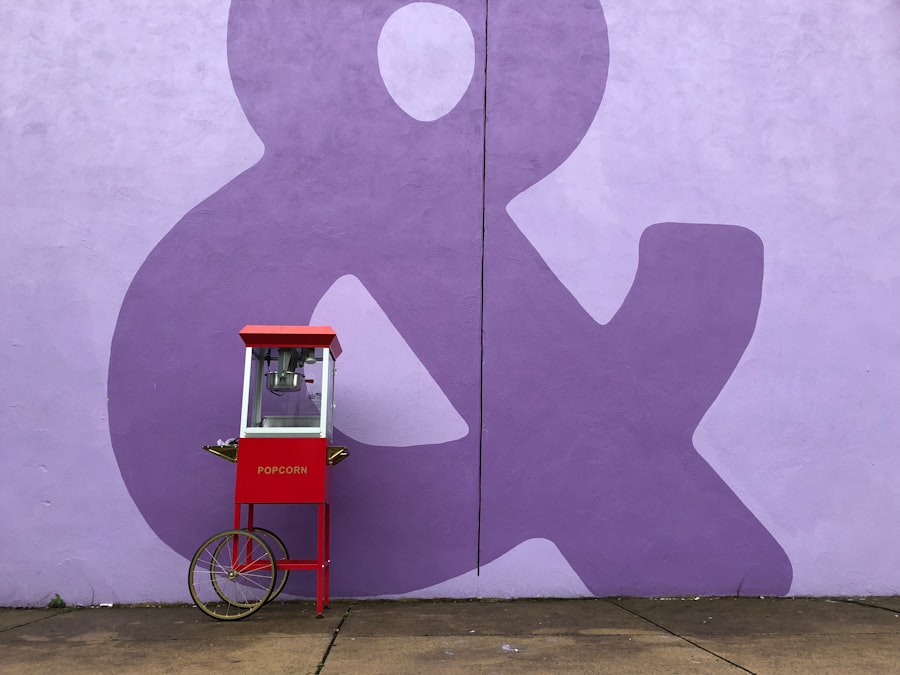In Taoism, death is not viewed as an end but rather as a natural transition within the continuous cycle of existence. This perspective resonates deeply with the fundamental Taoist belief in the interconnectedness of all things. I find it fascinating how Taoism teaches that life and death are two sides of the same coin, each giving meaning to the other.
The concept of “wu wei,” or effortless action, suggests that one should not resist the natural flow of life, including its inevitable conclusion. Instead of fearing death, I am encouraged to embrace it as a part of the greater tapestry of existence. Moreover, the Taoist understanding of death emphasizes the importance of harmony with nature.
I have come to appreciate how this philosophy encourages me to observe the natural world and recognize that all living beings undergo cycles of birth, growth, decay, and death. Just as the seasons change, so too do our lives evolve. This cyclical view alleviates the fear surrounding death, allowing me to see it as a transformation rather than a termination.
In this light, I can approach my own mortality with a sense of peace and acceptance, understanding that my essence will continue to exist in different forms.
Key Takeaways
- The Taoist concept of death emphasizes the natural cycle of life and death as an integral part of the universe.
- Embracing the natural cycle of life and death is a key principle in Taoism, encouraging acceptance and harmony with the inevitable.
- Taoist practices for accepting death include meditation, mindfulness, and cultivating a deep understanding of the impermanence of life.
- Ancestors play a significant role in Taoist beliefs, with rituals and ceremonies dedicated to honoring and remembering them.
- Taoist rituals and ceremonies for honoring the departed often involve offerings, prayers, and the burning of incense to show respect and gratitude.
- The Taoist view on the afterlife varies, with some believing in reincarnation and others in the continuation of the soul’s journey.
- Coping with grief and loss in Taoist philosophy involves embracing the natural flow of emotions and finding peace through acceptance and detachment.
- Integrating Taoist principles into end-of-life care involves providing a peaceful and harmonious environment, respecting the individual’s beliefs, and supporting a natural transition.
Embracing the Natural Cycle of Life and Death
Embracing the natural cycle of life and death is a profound aspect of Taoist philosophy that resonates deeply with me. I have learned that by accepting the inevitability of death, I can cultivate a more meaningful and fulfilling life. This acceptance allows me to appreciate each moment, recognizing that life is fleeting and precious.
The Taoist belief in living in harmony with nature encourages me to observe the rhythms of life around me, from the blooming of flowers in spring to the shedding of leaves in autumn. Each phase serves as a reminder that change is constant and that every ending paves the way for new beginnings. In my journey toward embracing this cycle, I have found solace in the idea that death is not something to be feared but rather a natural progression.
The Tao Te Ching teaches that just as a river flows into the ocean, our lives flow into the vastness of existence. This metaphor resonates with me, as it illustrates how we are all part of something greater than ourselves. By acknowledging this interconnectedness, I can let go of my attachment to life and its transient pleasures, allowing me to live more fully in the present moment.
Practices for Accepting Death in Taoism

Taoism offers various practices that help individuals accept death and cultivate a sense of peace regarding their mortality. One such practice is meditation, which allows me to quiet my mind and connect with my inner self. Through meditation, I can reflect on the nature of existence and confront my fears surrounding death.
This introspective journey helps me develop a deeper understanding of life’s impermanence and encourages me to let go of attachments that may hinder my spiritual growth. Another practice that resonates with me is the cultivation of mindfulness. By being present in each moment, I can appreciate the beauty and fragility of life.
Mindfulness encourages me to observe my thoughts and emotions without judgment, allowing me to process feelings related to death more effectively. This practice fosters a sense of acceptance and tranquility, enabling me to approach the topic of mortality with an open heart and mind.
The Role of Ancestors in Taoist Beliefs
In Taoism, ancestors hold a significant place within the belief system, serving as a bridge between the living and the spiritual realm. I have come to understand that honoring ancestors is not merely a ritualistic practice but a way to maintain a connection with those who came before us. This connection provides guidance and wisdom as I navigate my own life journey.
The reverence for ancestors reminds me that I am part of a larger lineage, and their experiences shape my own existence. The practice of ancestor veneration also emphasizes gratitude and respect for those who have passed on. By acknowledging their contributions and sacrifices, I cultivate a sense of humility and appreciation for my own life.
This act of remembrance fosters a deeper understanding of my place within the continuum of existence, reinforcing the idea that life is a shared experience across generations. In this way, I find comfort in knowing that my ancestors continue to influence my life even after their physical departure.
Rituals and Ceremonies for Honoring the Departed
Rituals and ceremonies play an essential role in Taoist practices for honoring the departed. These rituals serve as expressions of love and respect for those who have transitioned from this world. One common practice is the offering of food and incense at ancestral altars.
I find this act deeply meaningful, as it symbolizes my connection to my ancestors and acknowledges their presence in my life. By creating a sacred space for them, I can express my gratitude and seek their guidance. Another significant ritual involves participating in memorial ceremonies during specific times of the year, such as Qingming Festival or Ghost Festival.
These occasions provide an opportunity for families to come together in remembrance and reflection. I appreciate how these gatherings foster a sense of community and shared experience, allowing us to collectively honor our loved ones who have passed away. Through storytelling, sharing memories, and performing rituals, we create a space where grief can be expressed and healing can begin.
The Taoist View on the Afterlife

The Taoist view on the afterlife is both intriguing and comforting. Unlike many Western religions that emphasize judgment or reward after death, Taoism presents a more fluid understanding of what lies beyond this life. I have learned that Taoists believe in the continuation of the soul’s journey after physical death, where it may undergo various transformations based on one’s actions during life.
This perspective encourages me to live ethically and harmoniously, knowing that my choices have lasting implications. Additionally, Taoism teaches that the afterlife is not a fixed destination but rather an ongoing process of evolution. The concept of reincarnation is prevalent within Taoist beliefs, suggesting that our souls may return to Earth in different forms until they achieve spiritual enlightenment.
This cyclical view alleviates my fear of finality; instead, it inspires me to focus on personal growth and self-improvement throughout my lifetime.
Coping with Grief and Loss in Taoist Philosophy
Coping with grief and loss is an inevitable part of life, and Taoism offers valuable insights into navigating these challenging emotions. One key aspect is the understanding that grief is a natural response to loss; it is not something to be suppressed or ignored. I have found comfort in knowing that expressing my feelings is essential for healing.
The Taoist philosophy encourages me to honor my emotions while also recognizing their transient nature. Moreover, Taoism teaches that grief can be transformed into a source of strength and wisdom. By reflecting on the lessons learned from those who have passed away, I can carry their legacy forward in my own life.
This perspective allows me to find meaning in loss rather than succumbing to despair. Through practices such as meditation and mindfulness, I can cultivate resilience and acceptance, ultimately leading me toward a deeper understanding of life’s impermanence.
Integrating Taoist Principles into End-of-Life Care
Integrating Taoist principles into end-of-life care can provide comfort and support for both individuals facing mortality and their loved ones. One essential aspect is fostering an environment that respects the natural process of dying. I believe that allowing individuals to transition peacefully, surrounded by loved ones and familiar surroundings, aligns with the Taoist belief in harmony with nature.
This approach emphasizes compassion and understanding during a time when fear and uncertainty may prevail. Additionally, incorporating rituals and practices from Taoism can enhance the end-of-life experience. Simple acts such as lighting incense or playing soothing music can create a serene atmosphere conducive to reflection and connection with one’s spiritual essence.
Encouraging open conversations about death can also help demystify the process, allowing individuals to express their wishes and fears openly. By embracing these principles, I can contribute to a more compassionate approach to end-of-life care that honors both the individual’s journey and their connection to the larger cycle of existence. In conclusion, exploring the Taoist perspective on death has profoundly influenced my understanding of life’s impermanence.
By embracing the natural cycle of existence, honoring ancestors, participating in rituals, and integrating these principles into end-of-life care, I find solace in knowing that death is not an end but rather a continuation of our journey within the vast tapestry of existence. Through this lens, I can approach mortality with acceptance and grace, ultimately enriching my experience of life itself.









Add Comment